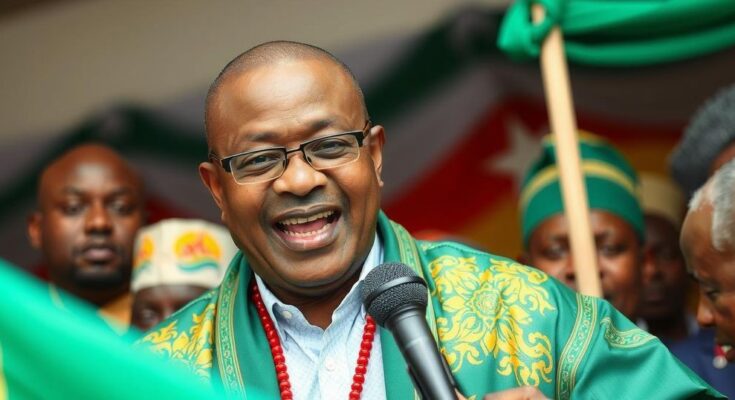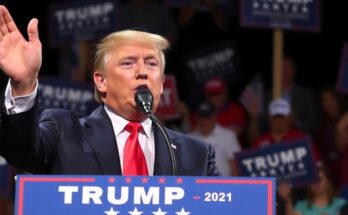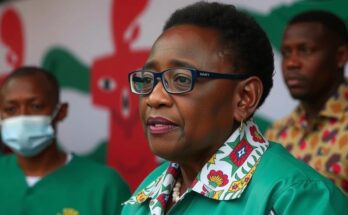Former Ghanaian president John Dramani Mahama has secured a historic election victory, winning against NPP’s Mahamudu Bawumia. The election was significantly influenced by economic discontent among voters due to high inflation and past financial crises. Bawumia has conceded defeat, recognizing a demand for change. Mahama, who aims to revive the economy, faces challenges from past governance issues as he returns to power.
John Dramani Mahama, the former president of Ghana, has achieved a significant electoral victory, marking his historic return to power. His win comes as the electorate expressed dissatisfaction with the ruling New Patriotic Party (NPP), led by Mahamudu Bawumia, the incumbent vice-president. Bawumia conceded defeat on Sunday after the weekend election, acknowledging widespread discontent regarding the high cost of living and the ongoing economic crisis that has plagued Ghana during the NPP’s eight-year tenure under President Nana Akufo-Addo.
Mahama, who served as president from 2012 to 2017, has pursued this position for the third time, having previously lost to Akufo-Addo in both the 2016 and 2020 elections. “The people of Ghana have spoken, the people have voted for change at this time and we respect it with all humility,” Bawumia stated during a press conference surrounded by party officials. Following the rapid concession, he immediately contacted Mahama of the National Democratic Congress (NDC) to express his congratulations.
Supporters of Mahama gathered in celebration outside the NDC headquarters in Accra, signifying a notable shift in political sentiment. Mahama confirmed on his social media platform that he had received the congratulatory call from Bawumia regarding his “emphatic victory.” Economic conditions, specifically Ghana’s significant inflation and recent debt crisis, have been central issues for voters, culminating in an IMF bailout worth $3 billion.
According to preliminary internal analyses by the NDC, Mahama is reported to have attained 56.3% of the votes compared to Bawumia’s 41.3%. Political representatives from both parties monitored the polls, and the official electoral commission results are anticipated to be released by Tuesday. The political landscape in Ghana is characterized by the alternating power between the NPP and NDC, a trend consistent since the re-establishment of multiparty democracy in 1992.
Despite attempts by Bawumia to secure a third consecutive term for the NPP, he was unable to overcome the burden of criticism pertaining to the economic challenges faced during Akufo-Addo’s administration. Economic indicators, while showing signs of stabilization, continued to foster voter frustration, facilitating Mahama’s comeback ability. Nevertheless, Mahama is not without his own historical challenges, as his presidency experienced significant critiques regarding previous economic difficulties, including sever hardships related to energy supply during his administration.
Ghana has recently faced severe economic challenges, including high inflation rates and a debt crisis, as evidenced by the country’s need to seek financial assistance from the International Monetary Fund (IMF). The ruling party, New Patriotic Party (NPP), experienced declining public support due to these issues, culminating in a loss during the recent elections. John Dramani Mahama, who previously served as president, has sought to reclaim the presidency amid these turbulent times. Historically, Ghana maintains a pattern of electoral power alternation between its two main political parties since the inception of multiparty democracy, making the recent election a critical juncture in the nation’s political landscape.
John Dramani Mahama’s electoral victory signifies a notable moment in Ghana’s political history, reflecting voter discontent with the incumbent NPP’s economic handling. The swift concession from NPP’s candidate, Bawumia, indicates a willingness to acknowledge the electorate’s desire for change. As Ghana moves forward, Mahama faces the challenges of addressing pressing economic issues while also navigating the expectations of a populace that remembers both his past tenure and current aspirations for recovery.
Original Source: www.theguardian.com




